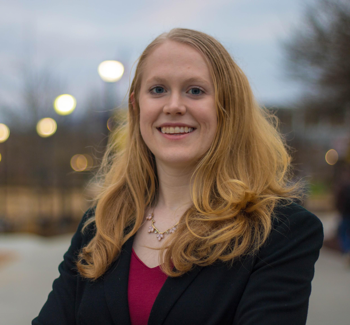
When I got the invitation to become involved with the RCE Greater Atlanta and the Youth Network back in July, I was not a hundred percent sure what I was getting myself into, but I knew it was a great opportunity. As I got involved, I began to understand more and more the mission of the RCEs and the opportunities they create to accomplish sustainable development. However, it was not until some months later when I got the opportunity to attend the 7th RCE Meeting of the Americas in Posadas, Argentina that I truly felt the impact that these RCEs can have. Representatives from the RCEs across the U.S., Canada and Latin America gathered to share their research and activities as well as discuss steps we can take together for future work. Dr. Roger Petry, co-coordinator of the RCE Saskatchewan in his presentation to us touted the importance of stories, and indeed the stories of these different RCEs and their accomplishments that were shared at the conference were truly inspiring and changed the way I think about how myself and others can promote sustainability.
What perhaps struck me most was the diversity of roles the RCEs can adopt and the number of creative ways they carry out education for sustainable development and promote the accomplishment of the SDGs in their communities. RCEs can be consultants and a resource for the community by sharing knowledge and advice and providing training for carrying out sustainability projects. They often bring together stakeholders to create brand new projects and carry out further research in the interest of sustainable development. Or they may even serve as mediators voicing the concerns of communities facing challenges to their sustainable development by other parties. It would be impossible to sum up the wealth of ideas that was exchanged at the meeting, but as we discussed some common challenges and issue areas, we were able to identify some focus areas and next steps we could approach together for a brighter future. One exciting development that we discussed was the idea of hosting a virtual youth network conference which would bring together youth representatives from the RCEs in the Americas to exchange ideas and foster opportunities to collaborate. I am excited to act as an ambassador of the 7th Americas Meeting and to help plan this conference with fellow youth ambassadors from the Greater Atlanta Youth Network and RCE Georgetown.
We also broke up into workgroups addressing three main issue areas: 1) Professional Development, 2) Biodiversity and Climate Change, and 3) The Beloved Community and community-driven approaches. I found myself working with the third group and was inspired by this idea of the Beloved Community, the idea of community-driven development models where RCEs can provide training, resources, and tools for communities to then be able to lead their own actions for sustainable development. Too often groups wanting to help communities think they know the best way to accomplish sustainable development and try to impose their ideas and models. Though such acts are well-intentioned, in order to achieve true sustainability only the community itself can truly know what they need to most, and thus community-driven approaches are crucial. We discussed a number of different models for this including Atlanta’s Environmental Justice Academy, the Ecomuseum in Canada, and a model in Peru where indigenous groups are invited to share their traditional knowledge and expertise to promote sustainable development. In comparing these different models, we realized there is a lot we could potentially learn from each other to strengthen these models and spread them to reach more communities. A major goal moving forward is to identify and compile information on the different models in one place so that we may be able to do this more easily.
I personally was not only inspired but emerged from this experience with a number of ideas that I could bring back to the Youth Network and ideas for actions I could take on my own to strengthen my contribution to sustainable development in my local community. I made valuable connections with people who could share with me their expertise to help me in my own project for ESD. I developed ideas for how I could be stronger in my role as a campus ambassador, by advocating for the incorporation of ESD in more classes and increase the diversity of representation in the youth network. Even when we weren’t specifically discussing RCE work or ESD, I learned so much just hearing conversations about the different cultures that were represented at the conference. I was the only student at the meeting, and some of the fellow RCE representatives questioned if this was a good experience for students. To them, I say this was an incredibly worthwhile experience that more students should be involved in. If the RCEs could find ways to support more students to be able to attend these conferences and meetings, I think it would have a very strong impact and strengthen the work that the youth are already doing.
